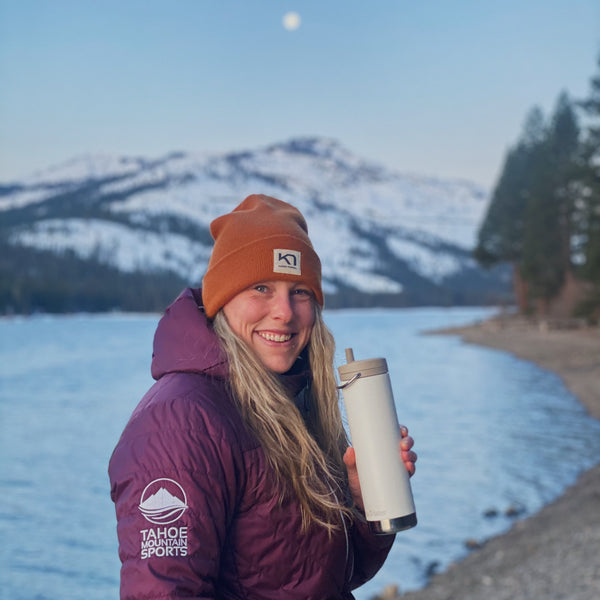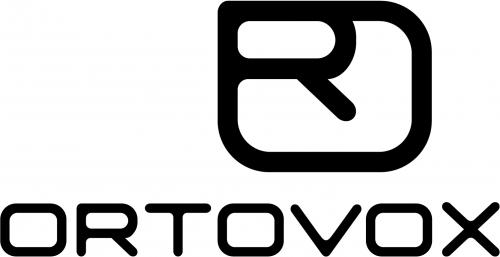Guide to the Most Sustainable Outdoor Gear
Are you wondering how to celebrate Earth Day every day? One way is to put your dollars into brands that support environmental initiatives and products that are made sustainably. But where should you start?? Well that’s where we come in. We’ve compiled a list of sustainable gear and environmentally minded brands so that you can do you part in supporting a healthier planet.
Ditch Single Use Plastics
It’s time to move away from single use plastics so what can you do? Choose reusable products instead that reduce the amount of waste and recycling generated.
Reusable Utensils
Stop throwing out plastic forks and spoons and bring a reusable utensil with you to work, on the trail, or when you’re traveling. Go for the set of three, a spoon, fork and knife, and you’ll always be prepared!

Sea to Summit AlphaLight – The AlphaLight Spoon, Fork & Knife cutlery set uses a durable aluminum in a sleek-yet-strong shape to create an extremely lightweight utensil. The hardened shell formed by hard anodization encapsulates the aluminum, to eliminate the risk of the alloy leaching into food.
Klean Kanteen Straws – Forget paper and plastic straws and keep this handy Klean Kanteen stainless steel straw nearby for smoothies or iced coffee. It has a removable silicone flex straw tip. It’s dishwasher safe and includes a palm fiber straw brush for easy cleaning.
Water Bottles and Mugs

Grab a Nalgene, Camelbak, Klean Kanteen, or Hydroflask to replace plastic water bottles. My Nalgene goes everywhere I do. It’s durable, easy to clean, and the measurements on the side are helpful to keep track of how well you are staying hydrated.

Hydroflask’s do an amazing job at insulating hot and cold liquids. Pick up a coffee mug for all your favorite hot drinks or a bottle for ice cold water on hot summer days.
Soft Flasks

Soft flasks are great for nearly any activity. They collapse and fit nicely in a running vest or pocket. Take these skiing, hiking, running, or biking to stay hydrated on the go without taking up too much space or weight.
Choose Solar Energy
Harness the power of the sun and choose renewable energy when possible.
MPOWERD Luci Lights
Do you have a junk drawer full of old batteries? Well here’s one way to cut down on that waste, a Luci Lantern. These solar powered lights are perfect for camping, around the house, or emergency uses like a power outage. Keep them in a window and they’ll be ready when you need them.


Patagonia is leading the way for environmental activism, corporate responsibility and sustainability in the outdoor industry.
The company has made big commitments to producing products sustainably: they plan to become carbon neutral across the entire business, including their supply chain, by 2025 and to use only renewable or recycled materials in their products by 2025.
Their vision also extends beyond production. They believe that gear should last; it should be functional and durable. This concept alone can have huge carbon emission savings. To this end, they’ve created a Worn Wear program to promote recycling, repairing, and reusing products that haven’t reached the end of their lifespan.
Patagonia doesn’t stop there, they also are heavily involved with environmental activism and support many non profits and grassroots activists that fight for the health of our planet. Their Action Works program even connects individuals to organizations they support so that you can get involved with a local climate advocacy group near you.

This German company creates high quality, function driven mountain safety equipment and apparel.
They strive to protect the environment by working with the Partnership for Sustainable Textiles, participating in global charitable projects with the European Outdoor Conservation Association, and employing the highest standards of protection for wool production.
Ortovox works closely with farmers in Switzerland and Tasmania to source high quality Swiss and merino wool for their mountain apparel. Because wool is so central to this brand, animal welfare is a high priority. Their Ortovox Wool Promise protects the animals, people, and land involved in the production of wool. Using the Responsible Wool Standard as a framework, this standard extends protections by focusing on animal welfare, farm management, land management, slaughter, and transport.
Why Swiss wool?
Ever wonder why Swiss wool is used instead of down as the filler in their insulating pieces? There are a variety of comfort advantages such as odor resistance, temperature regulation, and moisture regulation but for Ortovox, it also means good environmental practices. Using Swiss wool cuts down on transport and supports regional mountain farming, stimulating the economic growth of European sheep farms.

Carve Designs is committed to domestic manufacturing and uses factories in California to produce a large portion of their swimwear and activewear. When they can’t produce at home, they establish close relationships with overseas factories to ensure worker welfare and a transparent supply chain.
They are dedicated to producing sustainable swimwear and clothing and are a member of the Sustainable Apparel Coalition, a leading alliance for sustainable production. They use sustainable fabrics whenever possible like organic cotton, modal (carbon neutral and biodegradable fabric made from Eucalyptus trees) and tencel (carbon neutral and biodegradable fabric made from Beech trees).
Smartwool recognizes that the apparel industry is a significant contributor of greenhouse gas emissions and waste and they are committed to doing their part in shrinking their carbon footprint. A big part of this is the creation of ZQRX, the next evolution of Merino sheep farming. Sheep farming accounts for 53% of their product’s carbon footprint. By focusing on regenerative farming, they can work to actively draw down carbon from the atmosphere and re-deposit it into the soil —enhancing topsoil through natural means.
Merino wool is made up of proteins and amino acids. It naturally breaks down in water and soil making it a perfect natural and renewable resource for performance apparel. They have a goal to replace all non-renewable synthetic fibers with regeneratively grown materials. Until then, they are converting all virgin synthetic fibers they currently use to recycled fibers and are helping to lead innovation in developing natural performance solutions. By 2030 they hope to be using 100% regenerative materials in their products.
Check out the Second Cut Project where they are recycling old socks (any brand!) to into various things like dog bed fillings known as the K9 Camp Cushions. Until the end of April, you can bring your old socks into TMS to support this project. Learn more below.

TenTree is a brand driven by the belief that big change starts with small actions. They advocate for simple yet impactful practices like bringing your own bags to the grocery store, using reusable water bottles, and making sustainable choices when shopping.
With every purchase, TenTree plants trees to help regenerate ecosystems, capture carbon, and create planting jobs in communities worldwide. Their products are crafted with an Earth-First approach, ensuring they are made in fair, safe working conditions and using only sustainably sourced and recycled materials.
TenTree is committed to sustainability, sourcing only the most comfortable and eco-friendly textiles like TENCEL™ lyocell, organic cotton, and REPREVE® recycled polyester. They aim to minimize waste water and emissions in apparel manufacturing, with 98% of their products being eco-friendly.
Their partner factories adhere to ethical labor standards, ensuring fair wages, rest days, and equal employment opportunities. TenTree is a Certified B Corporation, recognized for their social and environmental performance, and they offset all emissions, constantly seeking more sustainable practices.







Leave a comment